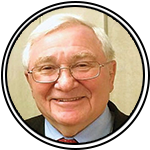According to The American Meditation Institute (AMI) founder Leonard Perlmutter, AMI MEDITATION practical self-care techniques that can relieve and prevent physician burnout will be taught at the 10th annual mind/body medicine CME conference October 23-27, 2018 at the Cranwell Resort and Spa in Lenox, Massachusetts. Entitled “The Heart and Science of Yoga,” this 32 CME comprehensive training, accredited through the American Medical Association and Albany Medical College, is designed to help identify, prevent and relieve physician stress and burnout.
Herbert Benson, professor of mind/body medicine at Harvard Medical School and director emeritus of the Benson-Henry Institute at Mass General Hospital, claims that maintaining good health is analogous to building a three-legged stool. The legs are comprised of: 1. Self-care (such as AMI Meditation), 2. Surgery and Medical Procedures, and 3. Pharmaceuticals. According to Dr. Benson, “Health and well-being is balanced and optimal only when all three legs of the stool are in place.”
AMI founder Leonard Perlmutter emphatically agrees. In concurring, he states that, “The ‘Heart and Science of Yoga’ CME curriculum supports physicians in addressing the vitally important self-care leg of the stool. This course represents the oldest and most effective holistic mind/body medicine to relieve and prevent burnout, heal disease, manage addictive habits, alleviate stress and inflammation, and balance life-work responsibilities.” Perlmutter concludes, “When the therapeutic practices of Yoga Science are consistently incorporated into daily lives of physicians and patients, most symptoms of stress related burnout and chronic complex diseases can be diminished or eliminated.”
In 2009, in support of the American Meditation Institute’s continuing medical education accreditation for physicians (through the Albany Medical College and the American Medical Association), AMI conducted a retrospective case study of participants who completed Leonard Perlmutter’s “Heart and Science of Yoga” course. The findings included these positive, reproducible, long-term health-promoting changes: significant reductions in stress and fear, decreased anxiety and depression, lowered blood pressure, lowered heart rate, improved restorative sleep, improved energy levels, increased creative capacity, diminishment of migraine headaches, elimination of irritable bowel syndrome, enhanced happiness and optimism, reduced cholesterol levels, diminished or extinguished acute and chronic pain, weight loss and increased breathing capacity.
Upon completion of this conference, participants will be able to: 1. Demonstrate knowledge of how Yoga Science as mind/body medicine can heal disease, manage addictive habits, alleviate stress, inflammation and physician burnout; 2. Develop equanimity, discrimination, will power, creativity and energy through a daily practice of AMI MEDITATION and diaphragmatic breathing; 3. Incorporate long-term strategies for healthy lifestyle choices using Yoga Psychology; 4. Demonstrate knowledge of the principles of both Ayurveda and Epigenomics; 5. Identify yogic practices to transform trauma and increase resilience; 6. Utilize Food as Medicine (diet and nutrition) to maximize personal well being; 7. Demonstrate knowledge on the research and therapeutic modalities of yoga and meditation as mind/body medicine; 8. Recognize the physiological benefits of Easy-Gentle Yoga and to identify and disable chronic pain mechanisms for improved exercise, health and pain relief; 9. Help themselves and patients reduce conditioned habits of negative thinking and other symptoms of burnout through the healing powers of AMI MEDITATION and mantra science; 10. Use Chakra Psychology (subtle emotional/mental causes of stress) to diagnose and treat dis-ease; 11. Recognize how AMI MEDITATION and meditation-in-action change the neural pathways in the brain to help manage pain; 12. Identify altered pathways in the brain due to addiction, and to recognize the capacity of Yoga Science and AMI MEDITATION to assist brain chemistry and circuitry to heal and rebuild itself; and, 13. Use the tools of Yoga Science to create a personal and medical culture of health and wellbeing.
The dedication, enthusiasm, and teaching methodology of the entire AMI faculty create a dynamic and interactive course for their students. Each faculty member is committed to the advancement and training of Yoga Science as holistic mind/body medicine. Presenters will include Leonard Perlmutter, AMI founder and faculty director; Mark Pettus MD, Director of Medical Education and Population Health at Berkshire Health Systems; Anthony Santilli MD, board-certified in Pulmonary and Critical Care Medicine; Sat Bir Singh Khalsa, PhD, Director of Research for the Kundalini Research Institute, and Assistant Professor of Medicine at Harvard Medical School; Susan Lord MD, a private practice holistic physician focusing on prevention and treatment, and former course director for the The Center for Mind-Body Medicine’s “Food As Medicine” program in Washington, DC; Jesse Ritvo MD, Assistant Medical Director, Inpatient Psychiatry, University of Vermont Health Center; Renee Rodriguez-Goodemote, MD, Medical Director of the Saratoga Hospital Community Health Center; Joshua Zamer, MD, Medical Director for Addiction Medicine at Saratoga Hospital Community Health Center and Chairman of the Department of Family Practice; Beth Netter MD MT, holistic physician and acupuncturist, Albany, NY; Prashant Kaushik MD, board-certified Rheumatologist; Anita Burock-Stotts, MD, board certified in Internal Medicine; Gustavo Grodnitzky PhD, Chair of the AMI Psychological Education Committee; Jenness Cortez Perlmutter, faculty member of The American Meditation Institute, and Lee Albert, NMT, acclaimed neuromuscular therapist and yoga instructor.
Joel M. Kremer, MD, who is Board Certified in Internal Medicine and Rheumatology in Albany, New York and a recent AMI conference participant states, “This teaching has been an enormous benefit in my personal and professional life. I have less stress, more focus, and am able to serve my patients with greater clarity. It becomes surprisingly easy now to recognize the many clinical situations in which patients with somatic manifestations of ‘dis-ease’ could greatly benefit from Yoga Science.”
In addition to Dr. Kremer, numerous medical pioneers and healthcare professionals such as Mehmet Oz MD, Dean Ornish MD and Bernie Siegel MD have also endorsed AMI’s core curriculum. Previous conference attendees have also noted that the material presented has made a beneficial impact in their personal and professional efforts at self-care.

